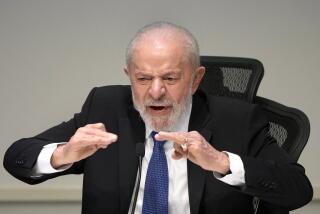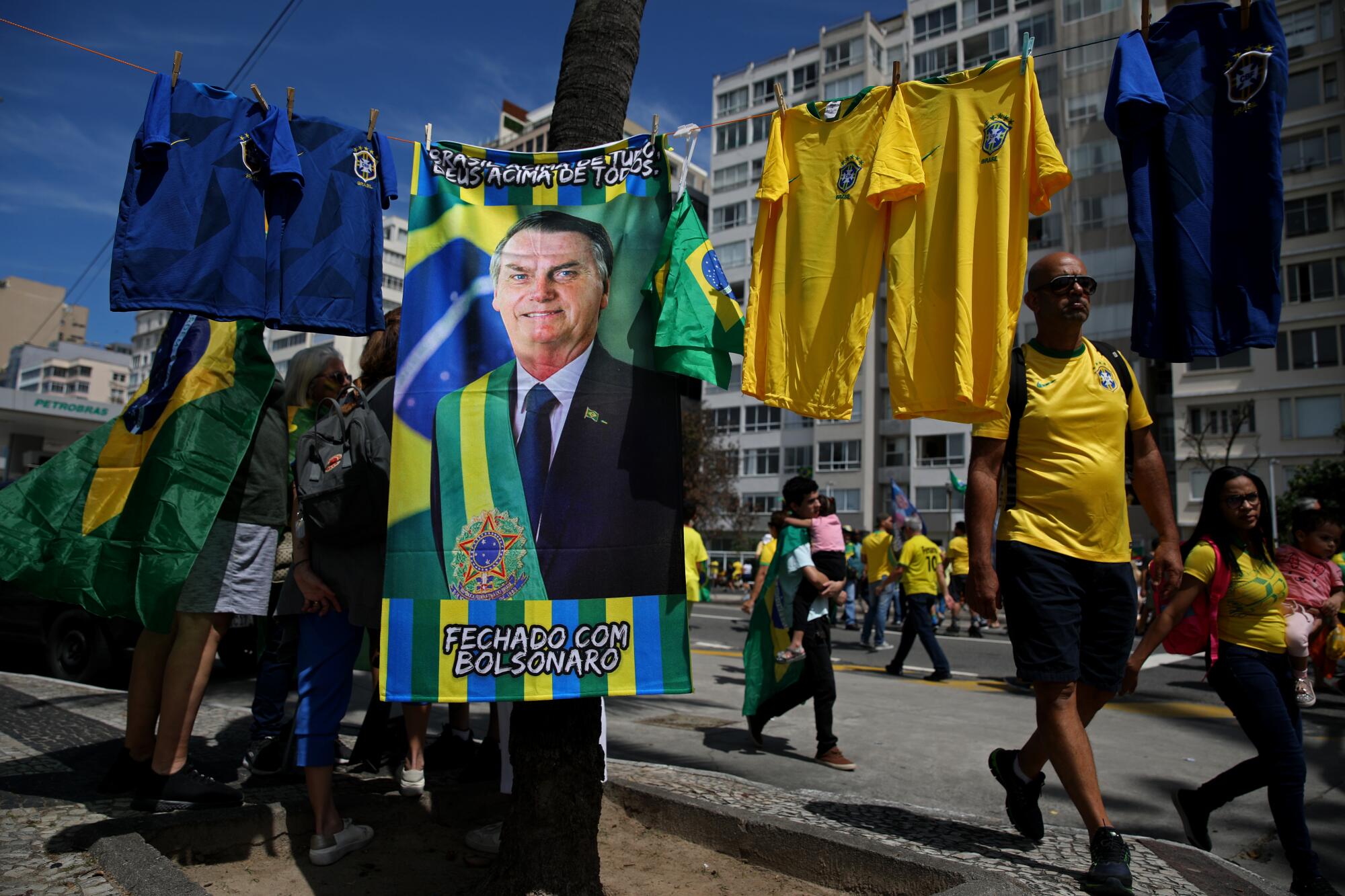
RIO DE JANEIRO — Standing atop a trailer with the Atlantic Ocean behind him, Brazilian President Jair Bolsonaro complained to a crowd of roaring supporters about a vast conspiracy against him.
Two women carried a banner calling on the armed forces to “protect our constitution, our liberty and our elections.” Demonstrators griped about “fake news” and the journalists who had slandered their candidate.
Bolsonaro had summoned tens of thousands of his supporters to this city’s signature Copacabana beach Wednesday to protest what he insisted was a rigged vote.
Never mind that the election hasn’t actually taken place yet.
For months, Bolsonaro has been preempting his own expected loss in October’s presidential vote by borrowing from the playbook of former President Trump, whom he describes as his “idol” and with whom he shares several political advisors.
He has repeatedly criticized the integrity of Brazil’s voting system and has suggested that he may not accept the results of the election, which most polls predict he will lose decisively in a runoff with former President Luiz Inacio Lula da Silva, known as Lula.
Brazilian election officials and foreign governments including the United States insist that the voting system is sound. But Bolsonaro appears to be readying himself for a fight.
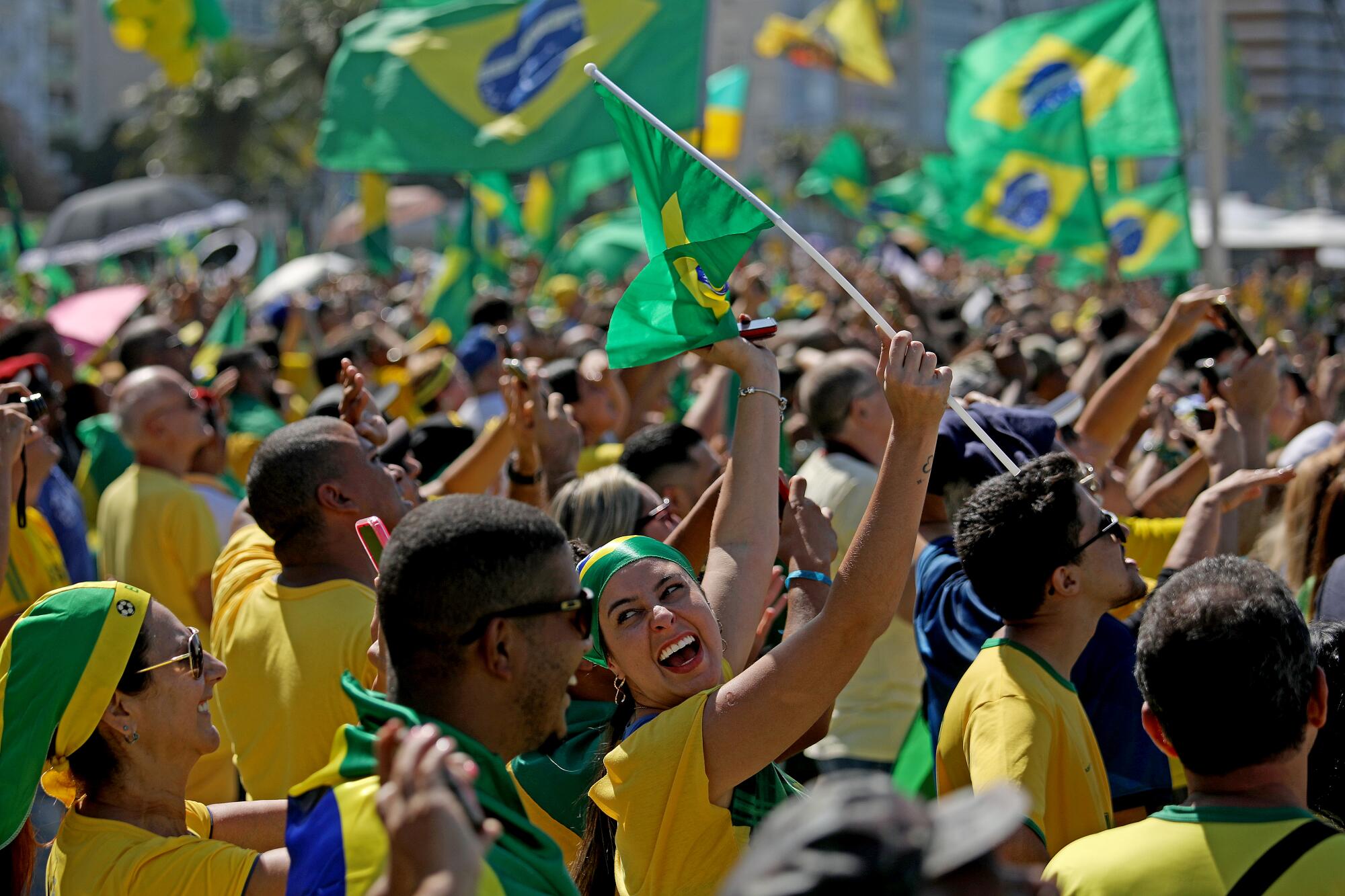
The far-right leader, who rode into office in 2019 on a wave of populist anger after Lula was jailed and his successor was impeached as part of a corruption investigation, has said he views just three possibilities for his future: “prison, being killed or victory.”
“If needed,” Bolsonaro has said, he and his supporters “will go to war.”
What exactly that means is anybody’s guess. Some analysts fear that Bolsonaro, a former army officer who praises Brazil’s not-so-distant military dictatorship, could be plotting a coup or an insurrection modeled on the attempted takeover of the U.S. Capitol by supporters of Trump.
They place Bolsonaro among a global tide of leaders with authoritarian leanings who have weakened democracies in recent years, from Hungary to El Salvador.
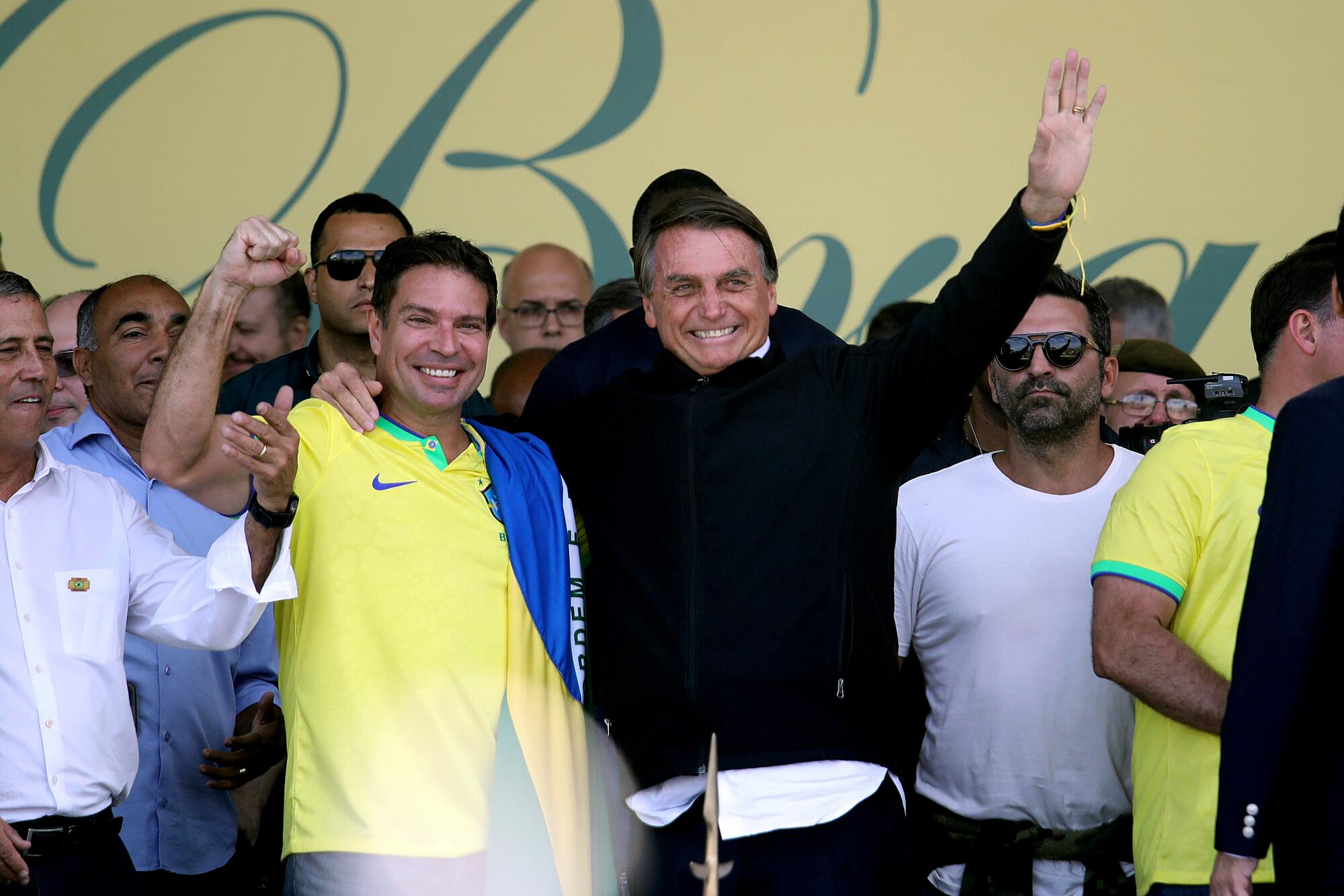
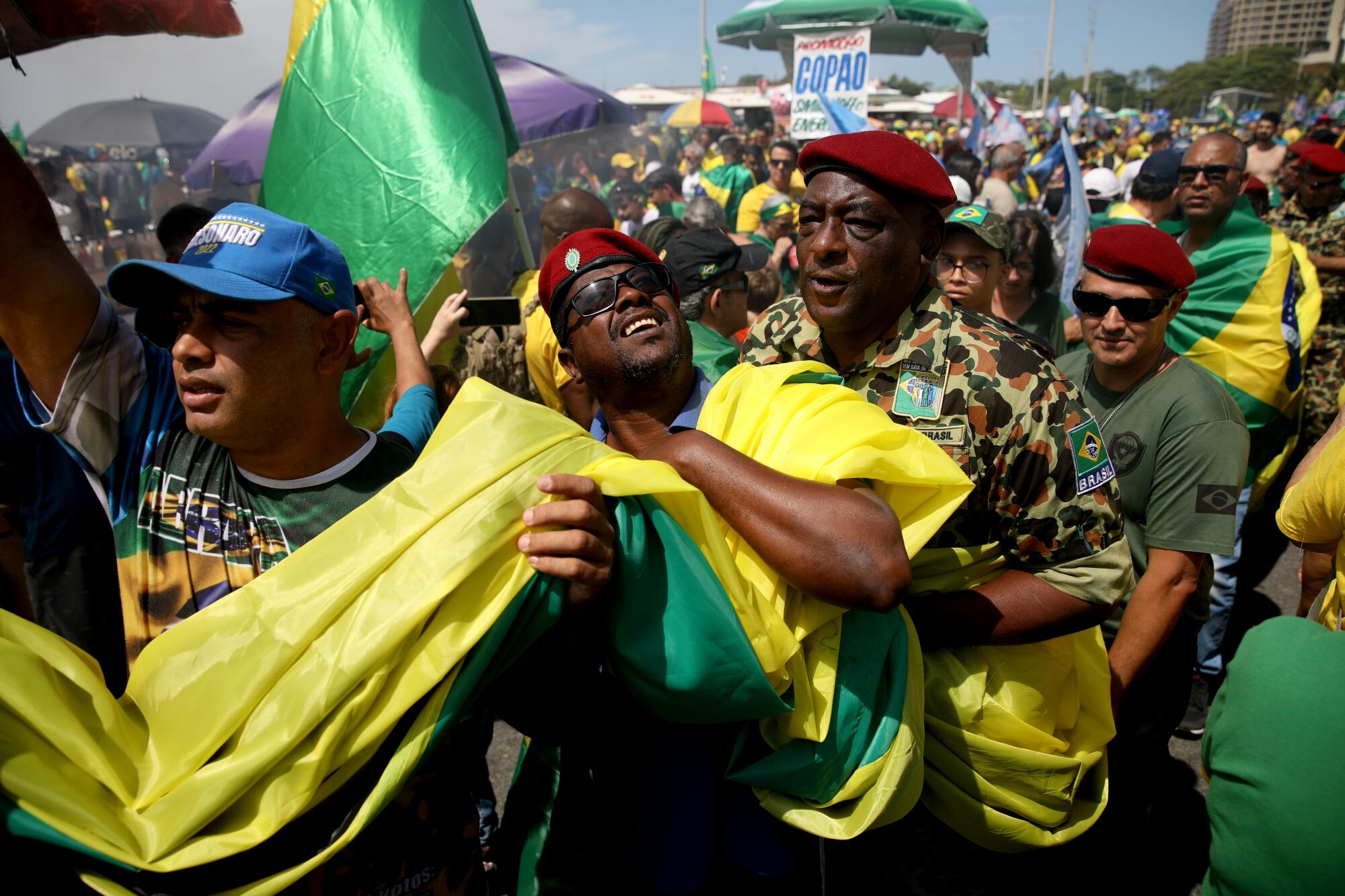
“We have learned the hard way over the years to listen to these kinds of leaders when they tell us what they’re going to do,” said Brian Winter, vice president for policy at the Council of the Americas, who predicted that Brazil is headed for “an institutional crisis.”
With the president and his family members facing a number of corruption investigations, Winter said, “Bolsonaro has a lot to lose.”
Many here believe that if Lula wins — polls currently show him with a 10-point lead — a peaceful transition of power will depend on the depth of Bolsonaro’s backing within the military — and the reaction of his supporters.
And so on Wednesday all eyes were on Copacabana beach, that two-mile stretch of white sand where bikini-clad women and teenagers punting soccer balls were joined by throngs of fervent Bolsonaro backers dressed in the green and yellow of Brazil’s flag, colors that have become synonymous with his campaign.
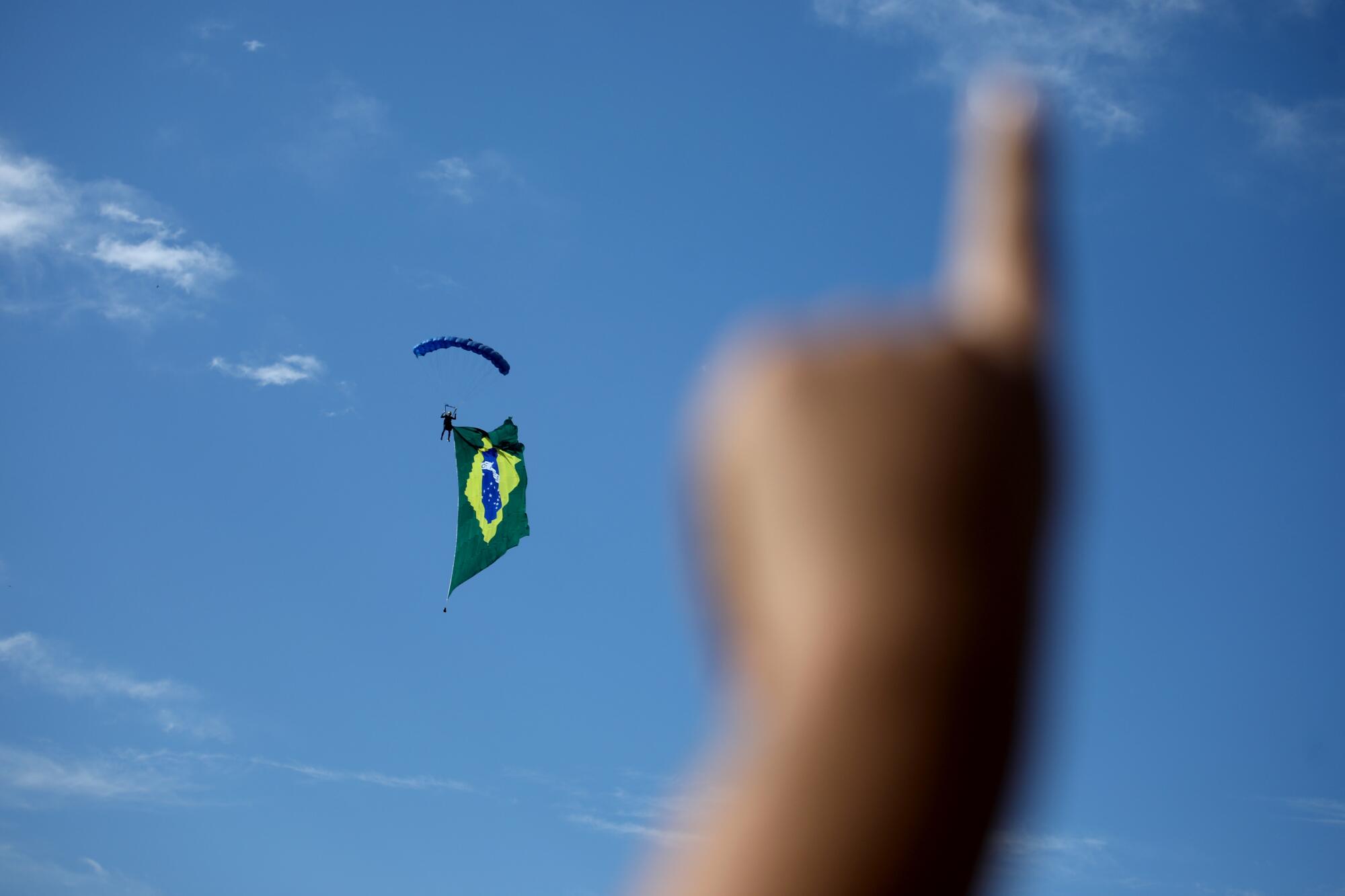

Many attendees, such as Cynthia Figueira, voiced a sense of foreboding.
Echoing the president’s unfounded allegations of flaws in the country’s electronic voting system, Figueira said she hopes any fraud in the coming election can be resolved in a diplomatic manner, but she isn’t counting on it.
“Brazilians are peaceful people — we like samba and Carnaval,” she said. “But I don’t think it’s going to be peaceful.”
Figueira said anything was better than the return of Lula, the 76-year-old leftist who was credited with lifting large numbers of Brazilians out of poverty, was jailed in 2018 for corruption, then released the following year after his convictions were annulled.
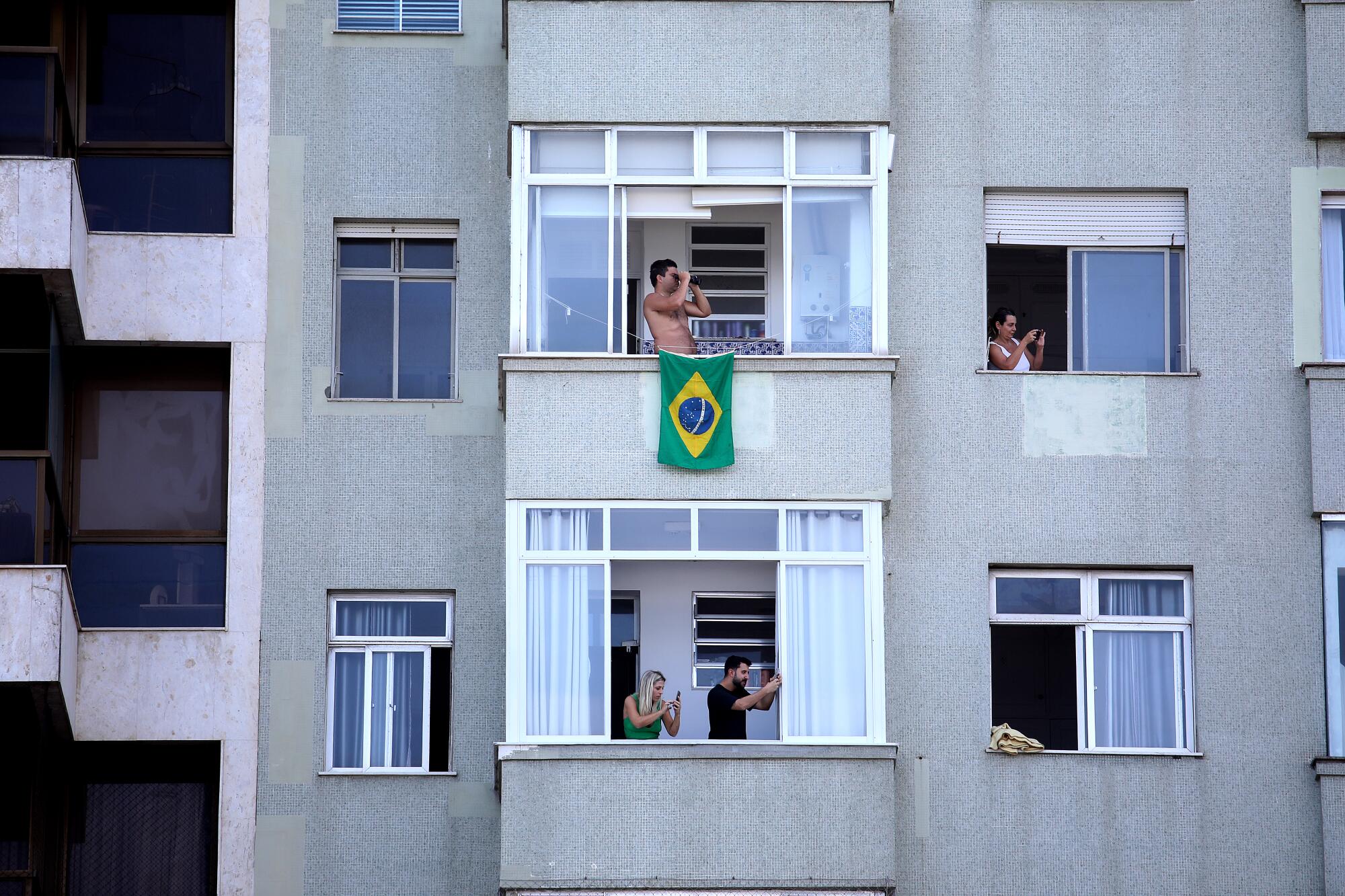

“I’d rather have a military coup than another four years of Lula,” she said.
Around her, the crowd joined in angry chants — “Lula, thief, your place is in prison!” — and hurled insults at the few opposition supporters who had hung flags from the elegant residential buildings that line the boardwalk.
Wednesday’s event was ostensibly a national celebration of the 200th anniversary of Brazil’s independence — and featured a major show of military force.
Bolsonaro’s decision to hold a parallel campaign event blurred the lines between government and politics, leaving the strong impression that the military pageantry — paratroopers gliding onto the beach, cannon fire from a nearby fort and flyovers set to the “Top Gun” soundtrack — were all in support of Bolsonaro. Indeed, some people participating in the events wore Bolsonaro campaign gear.
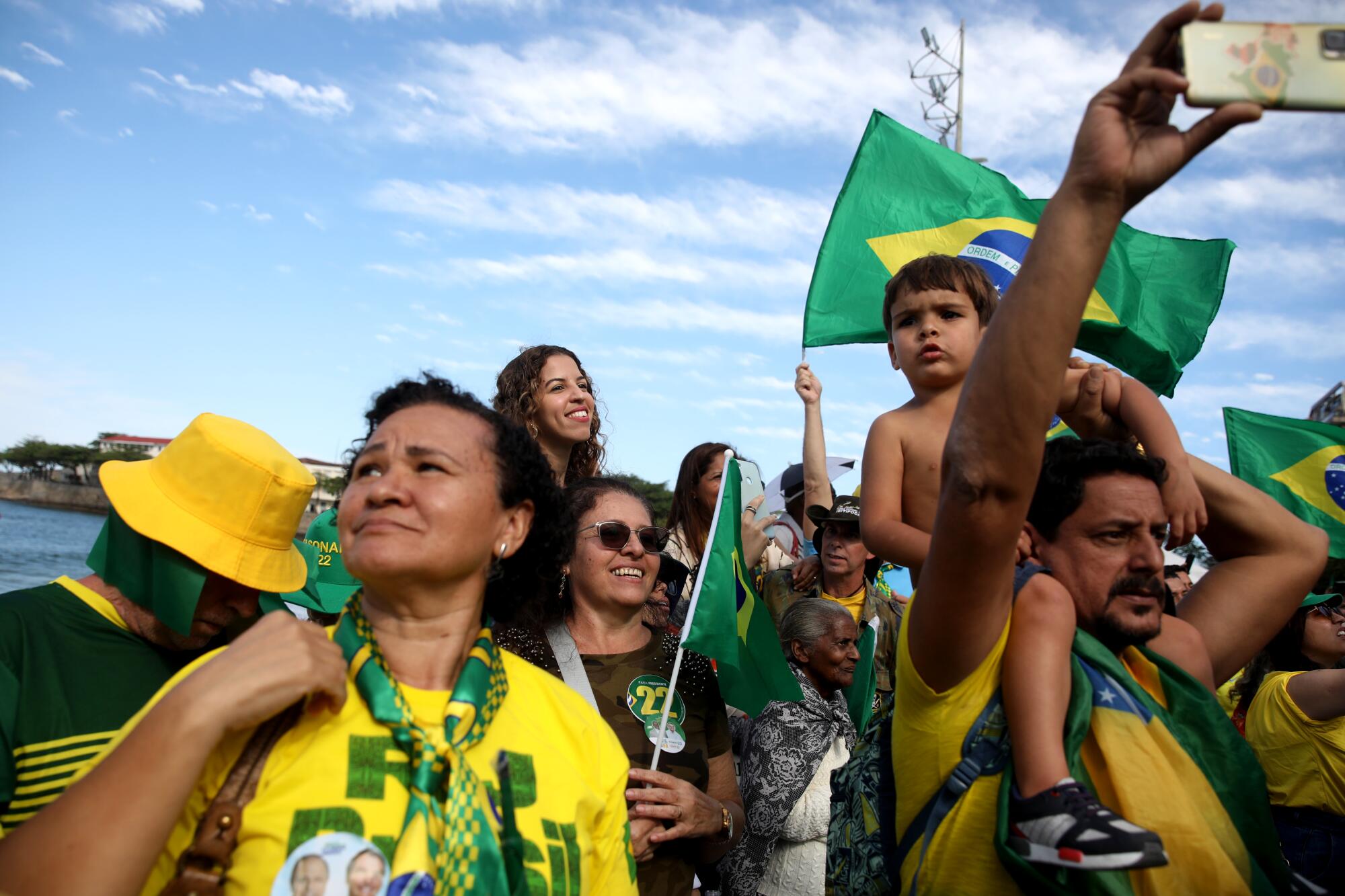
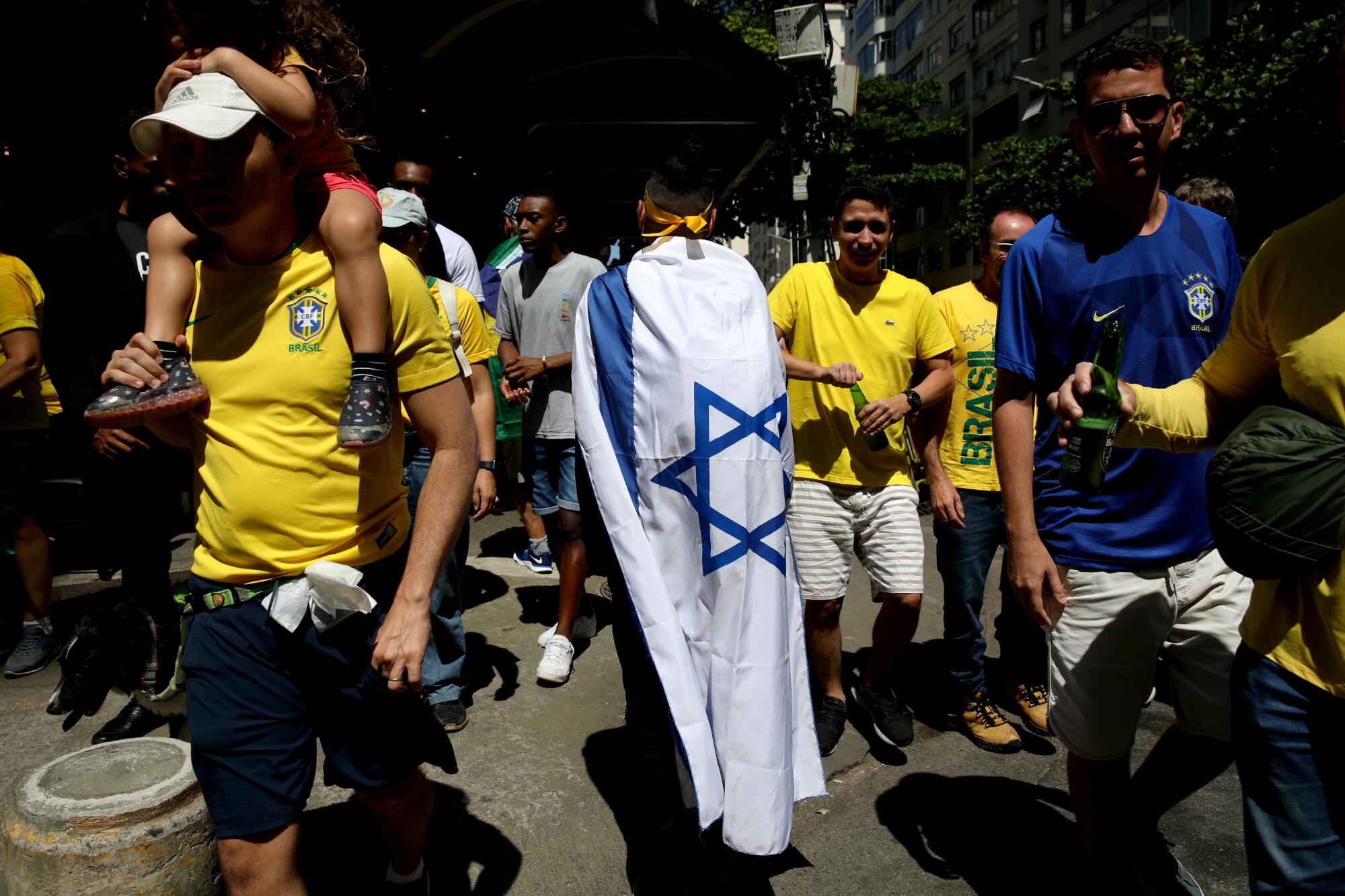
Lula’s Workers’ Party filed a complaint with the Supreme Court on Wednesday saying Bolsonaro should be charged for abuse of power for holding a “campaign mega-rally” at an event in which he was supposed to participate strictly as president.
Although some wondered whether Bolsonaro might use the event to further escalate his attacks on the electoral process, the president largely stuck to a campaign speech.
He criticized efforts to legalize abortion, complained about what he calls “gender ideology” and warned that if the left takes power, Brazil will become like “Venezuela and Nicaragua.”
He called the opposition “evil” and warned that his rival would flout the constitution.
It was exactly what Selma Rodrigues, a 44-year-old artist in the crowd, wanted to hear.
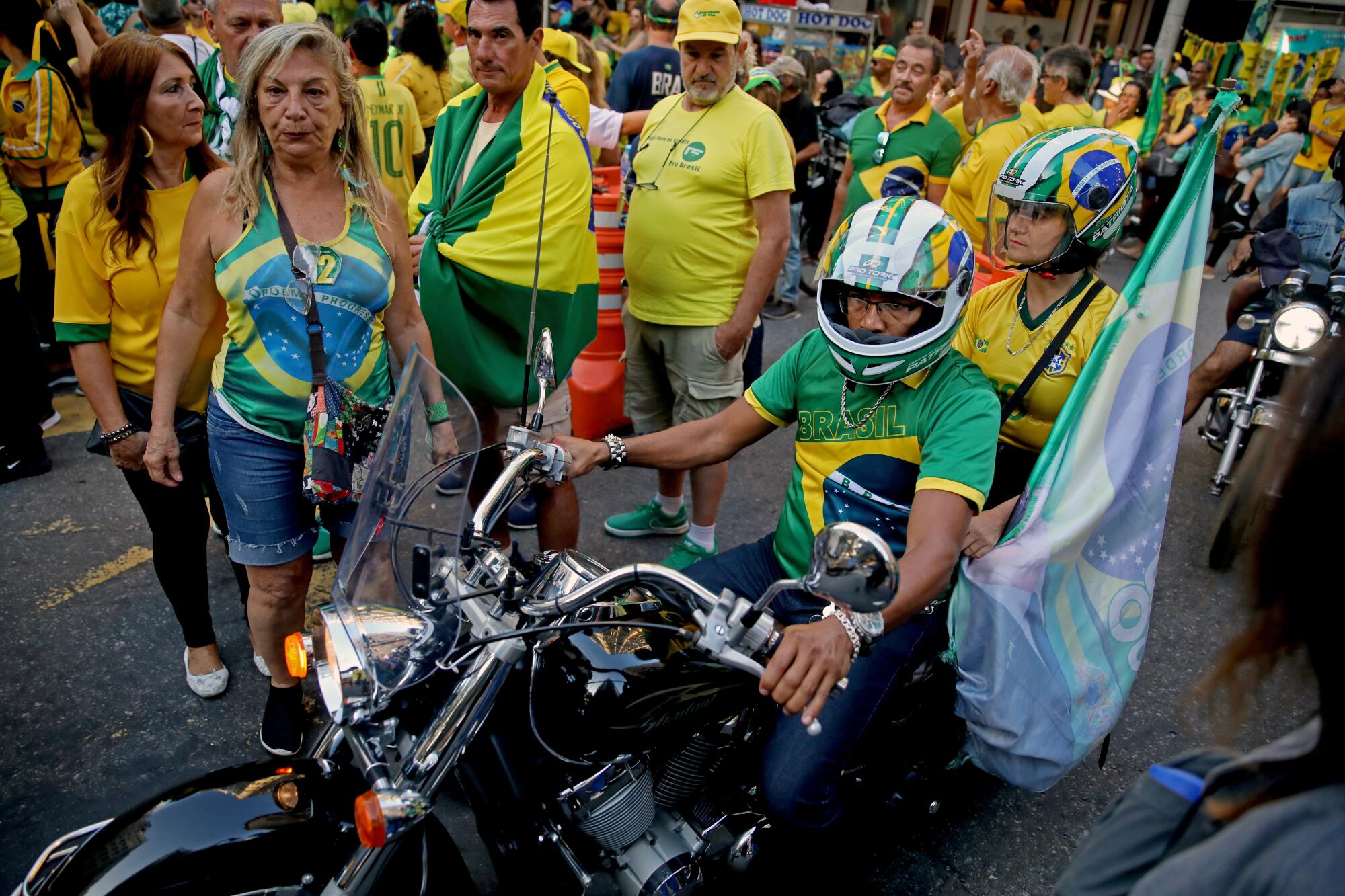
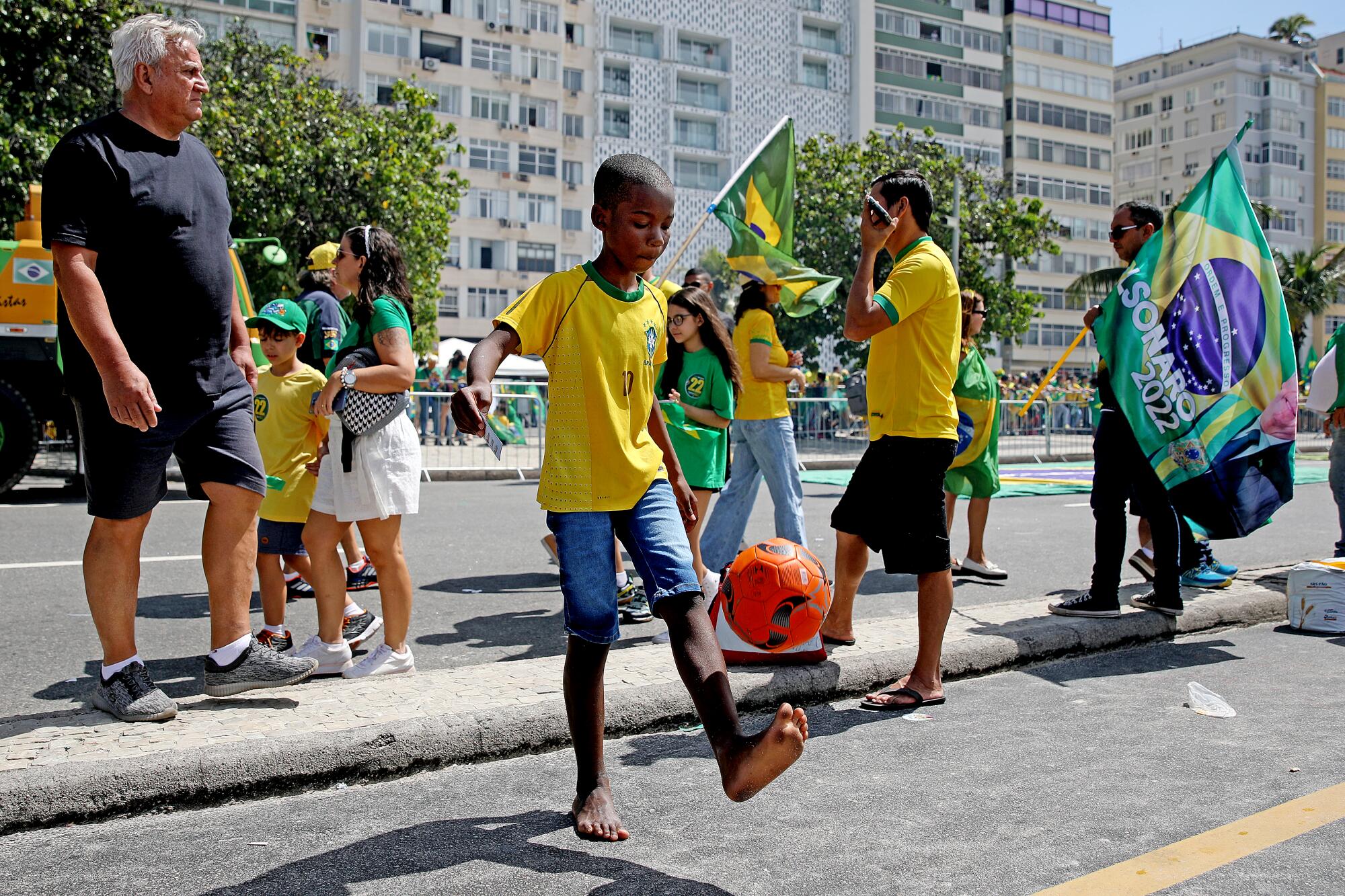
“The institutions of this country have done everything to attack his campaign and destroy his image,” she said. “They will try fraud, of course, but we won’t respect the results.”
At home, Rodrigues doesn’t talk politics much. Her adult daughters support Lula and don’t understand why she doesn’t.
Not unlike the United States, political polarization has risen markedly here over the last decade, with political conflicts and culture wars shattering friendships, ruining family gatherings and on occasion spilling violently into the streets.
As the sun set and Bolsonaro departed in a motorcade flanked by dozens of motorcyclists, many supporters lingered on the boardwalk, happy, for a moment, to be among themselves.
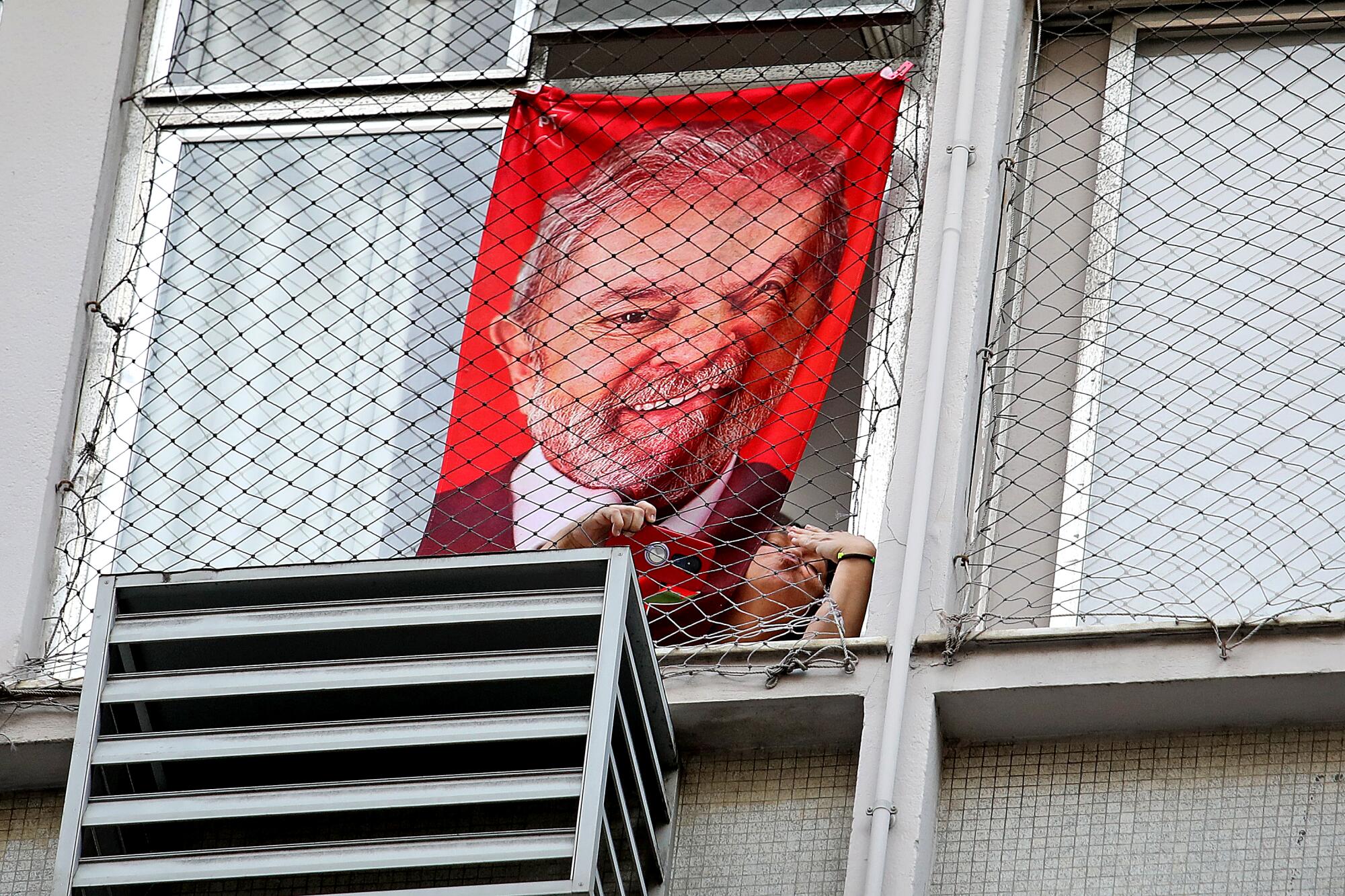
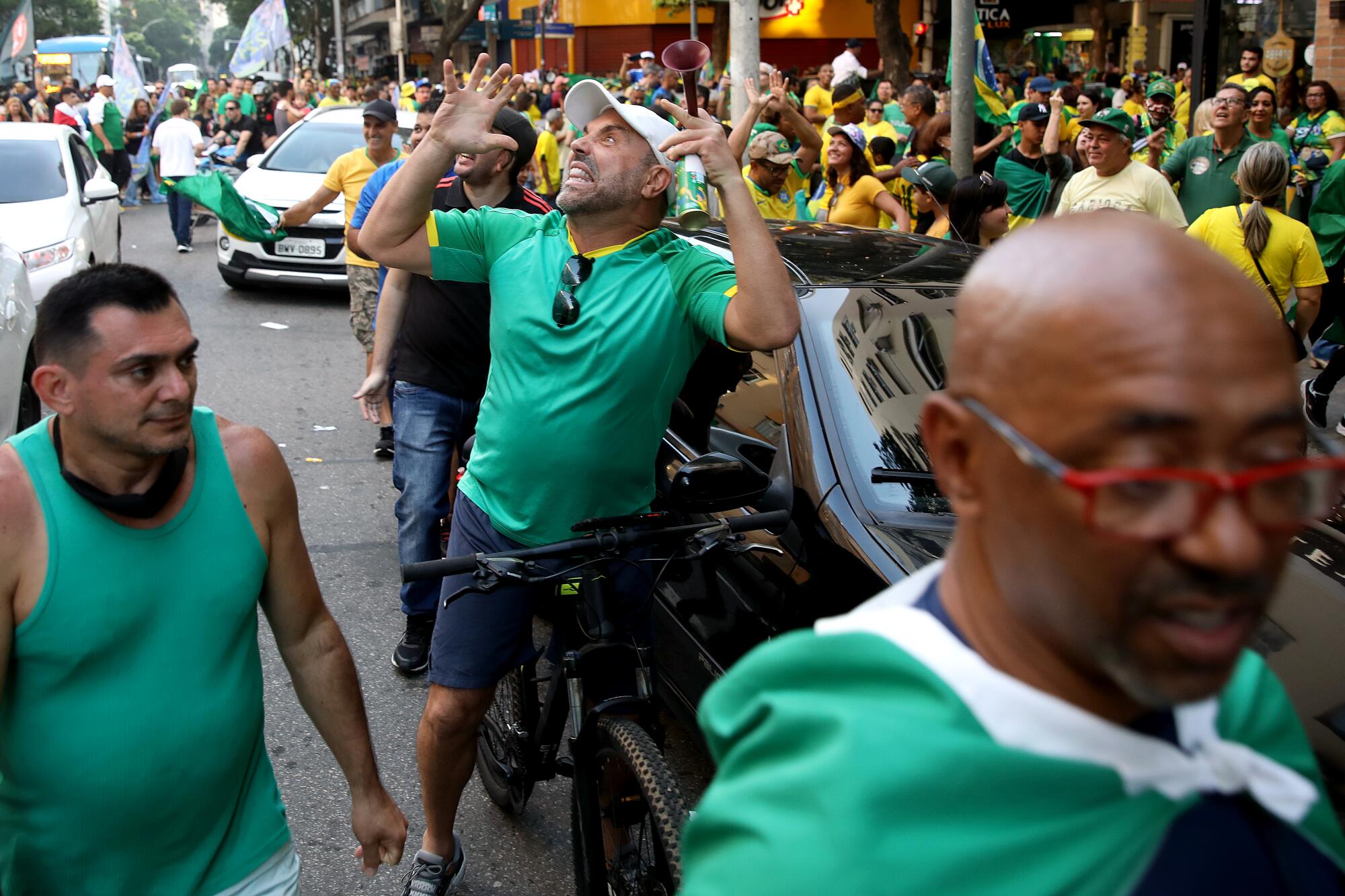
Special correspondent Roberta Fortuna contributed to this report.
More to Read
Sign up for Essential California
The most important California stories and recommendations in your inbox every morning.
You may occasionally receive promotional content from the Los Angeles Times.

